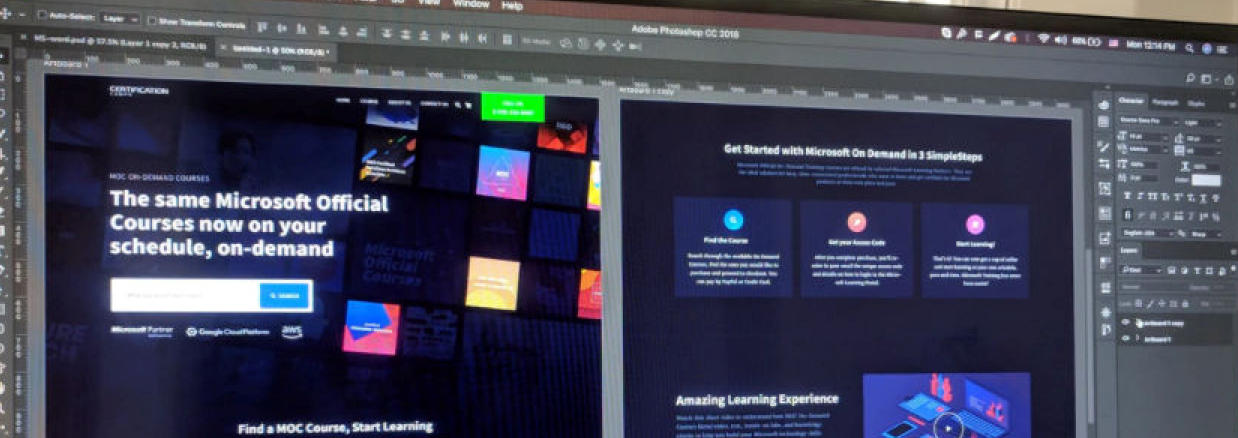

Proprietary software, which is also often known as closed-source software, is a type of
computer software whereby the owner / developer / publisher or another agreed person holds
intellectual property rights.
This means that the actual programming - or source code - is not publicly released for general use,
I.E. it is closed-source.
The actual owner of the software often licenses it with specific terms and conditions which
grant the licensee the right to use the it in certain pre-specified ways. Typically,
the user must accept these terms before they are permitted to install or use the software - or even attain a copy.
The licensee (user) is generally not allowed to modify, share or reverse-engineer the software.
Examples of proprietary software from across the globe and at various scales include
Microsoft Windows, Adobe Creative Suite and many console or computer video game titles.
These are in contrast to open-source software, where the source code is freely available and
can be modified and shared by anyone.
Here at Photon Flux we can write our own proprieatary software in various computer programming languages, this
is not the same as many web design companies, who may use freebie type software to create your website.

We write proprietary software applications which are often very specific, by virtue of their
design and operational functionality, to the running of our clients business.
For example, your company may have a very unique product offering, which in turn
requires unique and customised process workflow including invoice management and
CRM. The free software or open source market may not be able to provide such unique
process control, which is where we come in with our in-house software solutions.
Another reason other companies create proprietary software is to maintain control
over the softwares development and distribution. This is more typical of software
developed for what is known as a vertical market - such as standard
accounting software. Users of these applications normally do not own the rights
to modify or re-sell the software, those rights are owned by the developing company
more often than not.

The main and overriding advantage of proprietary software is that it does
EXACTLY what the client requires, this can help them retain their competitive
edge in certain scenarios.
One controversial or perhaps even disadvantage of proprietary software is that
it tends to create customer lock-in. Because the source code is not available,
users can't modify the software to meet their specific needs, and they must rely
on the software vendor to provide updates and improvements. This dependence
can also cause problems if the vendor discontinues the software or goes out of business.
Sometimes the secrecy of the source code in proprietary software can present
a security issue known as "security through obscurity." The theory is that by keeping
the inner workings of the software secret, it is less likely to be exploited.
This approach has been criticized here and there because it can lead to complacency
and genuine vulnerabilities in the code may be overlooked as a result.
Overall, whether a company prefers proprietary or open-source software depends on
various factors, such as the specific use case, the need for support and
updates and general subjective beliefs about software development.
At the end of the day - we believe that if you need a custom system, then that
is what you have to choose - and in this instance, you can always come back
to get changes on demand. If the worse case occurs, we can always sell you
the rights (or may even give them) as our job is to help not hinder your success.

To conclude, we feel the customization of proprietary software is thought to be
typically less readily available compared to its open-source versions - if they are even available. This is down to its closed
nature, only the original developers can make substantial changes or add new features
to the software. It can be argued that this is the safest bet, because non-original
developers may not be fully aware of the nuances and introduce bugs.
Users have to typically pay to use the software, either through a one-time purchase
or a recurring subscription fee - you may have seen this with some email systems
or accounting packages. Even if the software is offered free of charge,
the developer usually retains full commercial rights and might limit
functionality, run ads, offer paid upgrades or other upsells.
Proprietary software often comes with professional support from the
developing company or the owner of the rights. This can be an advantage
for users who need reliable and timely assistance. Companies also
typically handle updates and improvements, making sure that users always
have access to the most stable and secure version of the software.
The integration and compatibility proprietary software offers is
often designed to work seamlessly with other software from the
same vendor, but it might not be as compatible with software
from other sources. This can sometimes lead to a type of vendor lock-in,
where the user becomes reliant on software from one company and finds it
difficult to switch to another product due to compatibility issues. There
are often ways around this with our solutions - because the last thing we
want is our clients data being stuck in one place when it is needed in other
applications - such as spreadsheets or databases. Exporting is provided where required.
Intellectual Property - Using proprietary software might also come with legal
responsibilities. Users must adhere to the terms of the license agreement,
which might restrict how they can use the software and what they can do
with it. Violating these terms can sometimes lead to legal issues. On the
other hand, the company has the responsibility to uphold its end of the
agreement, such as providing promised services. Effectively the door swings
both ways.